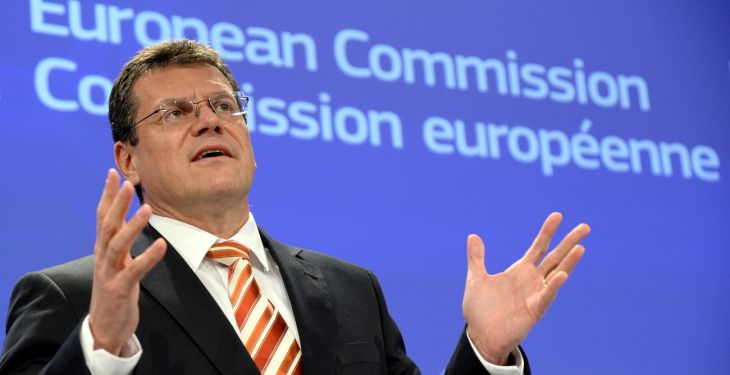The European Commission’s Winter Package of Energy Union laws will be a turning point for clean energy, says Maroš Šefčovič. But the spirit of the package goes further than clean energy or tackling climate change – it’s also about economic transformation, he argues on euractiv.com.
After 300 hundred years of industrialisation, the European society is moving towards low-impact, sustainable existence. While GDP has grown by 50% since 1990, our emissions fell by 22%.
”This means we have successfully decoupled emissions from our economic growth, we have proved there isn’t a trade-off between the two objectives”,
More importantly, the realisation that climate change may cause in future a much larger recession than the 2008 global recession is gaining traction globally. After all, in the 21st century we have experienced nine of the ten warmest years on record, with 2016 being the hottest yet.
”Ironically, 2016 has been the most successful year yet in the fight against climate change. And the entry into force of the Paris Agreement and delivery of our “Clean Energy for All Europeans” package convey the strong resolve of 2016 very well.
With this package we have proposed 90% of what we announced in the 2015 Framework Strategy for a Resilient Energy Union. This is why I called 2016 the year of delivery. And this is why I call 2017 the year of implementation,” Šefčovič adds.
The “spirit” of this package is that not only will this enable Europe to reach its climate and energy targets – but that it is fundamentally also a tool to modernise the industrial and economic fabric, to the benefit of the citizens.
”It’s a change of paradigm where we want to move from centralised fossil fuel systems to a more decentralised, decarbonised, democratised, diversified, digitalised and disruptive model.
Therefore this is not only about energy, or fight against climate change, this is about re-inventing our economy, its sources of growth, jobs and welfare. The fight against climate change makes also a very strong business sense.”
Šefčovič also believes that the global energy transition race will bring up new commercial opportunities, more green jobs to Europe whilst modernising the entire economy.
”The response of the European Commission to this urgent responsibility is epitomised by its Strategic Energy Technology Plan (SET Plan). It coordinates member states in the pursuit of ten enabling technologies; to reduce the cost of renewables and improve their integration, to develop smart homes, and more generally increase the smartness of our energy system, to enhance the uptake of energy efficient solutions for buildings, to improve the cost effectiveness of our industry, to strengthen our energy options for sustainable transport, to become competitive in the battery sector, and step up R&I activities in carbon capture, storage and use, and increase nuclear safety,” he also said.
Maroš Šefčovič is vice-president of the European Commission, in charge of the Energy Union.
